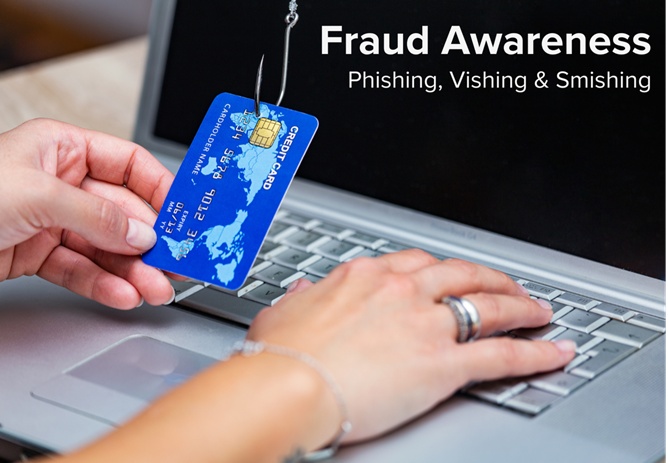14 November 2024
Fraud Awareness: Beware of Phishing, Vishing, and Smishing
In today’s digital landscape, fraudsters are constantly developing new tactics to trick individuals into revealing sensitive information. Among these tactics are phishing, vishing, and smishing—three prevalent forms of deception that target unsuspecting victims.
Understanding these methods is important for protecting yourself and your personal information.
Phishing: The Email Trap
Phishing is one of the most common and insidious forms of online fraud. It typically involves fraudulent emails that impersonate trustworthy organisations, such as credit unions, banks, government agencies, or popular online services. These emails often contain urgent messages urging recipients to click on links that lead to counterfeit websites designed to capture login credentials, personal data, or financial information.
How to Protect Yourself:
• Verify the Sender: Always check the sender’s email address for discrepancies. Legitimate organisations typically use official domain names.
• Avoid Clicking Links: Hover over links to see the actual URL before clicking. If it looks suspicious, do not click it.
• Look for Signs of Fraud: Poor grammar, spelling mistakes, and generic greetings can be red flags.
Vishing: The Phone Call Deception
Vishing, or voice phishing, involves fraudsters using phone calls to impersonate reputable entities such as banks, credit card companies, or tech support services. During these calls, scammers may ask for personal information, authentication codes, or even payment details, often creating a false sense of urgency.
How to Protect Yourself:
• Do Not Share Personal Information: Never provide sensitive information over the phone unless you initiated the call and are certain of the recipient's identity.
• Hang Up and Verify: If you receive a suspicious call, hang up and contact the organisation directly using a verified phone number.
• Trust Your Instincts: If something feels off about the call, it is better to be cautious.
Smishing: The Text Message Trap
Smishing, or SMS phishing, is another tactic where fraudsters send deceptive text messages that appear to be from legitimate sources. These messages often contain urgent claims—such as winning a prize, needing to confirm account information, or resolving an issue—that entice recipients to click on links leading to malicious websites.
How to Protect Yourself:
• Be Sceptical of Urgency: Scammers often use urgency to pressure you into acting quickly. Take a moment to think before clicking any links.
• Do Not Click on Suspicious Links: If the SMS contains a link, do not click it without verifying the source.
• Report Suspicious Messages: Most mobile providers allow you to report smishing attempts, helping to combat these scams.
Being aware of phishing, vishing, and smishing is essential in protecting your personal and financial information. By staying vigilant and following these tips, you can help safeguard yourself from falling victim to these deceptive tactics.
Always remember, if something seems too good to be true or feels suspicious, it is better to be extra cautious. Stay safe!
If you have any questions or if you have received an email, phone call or text purporting to be from the ‘Credit Union’, please do not hesitate to contact RTÉ Credit Union at 01 208 2628 or email info@rtecu.ie



